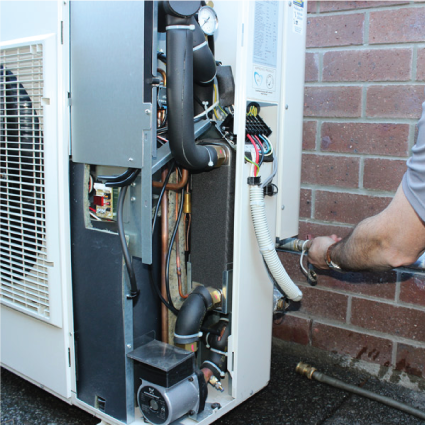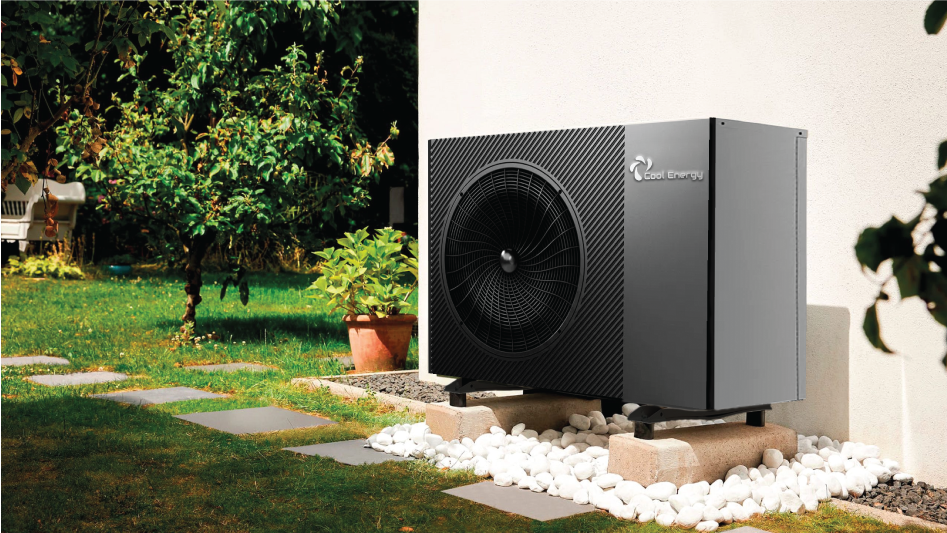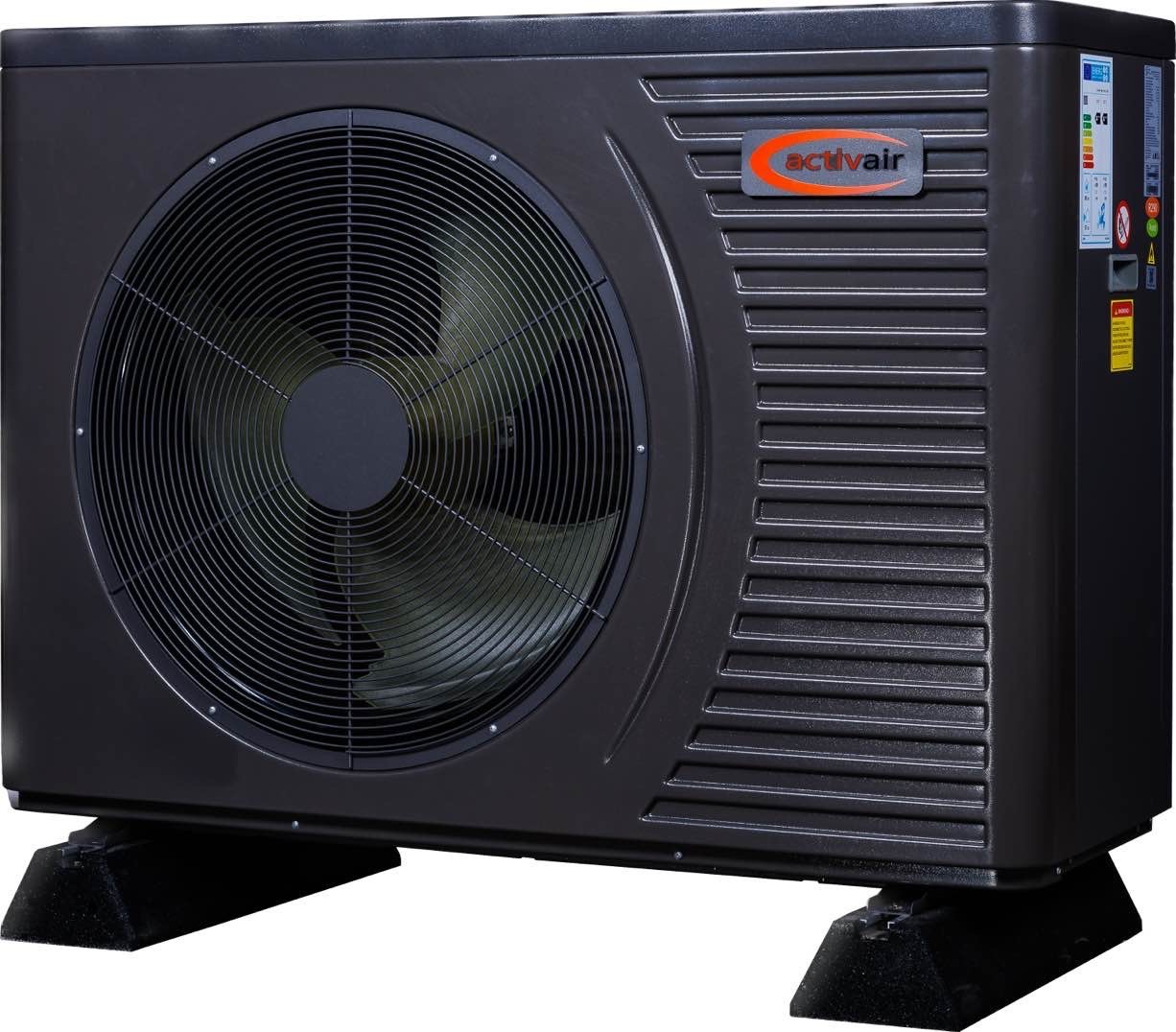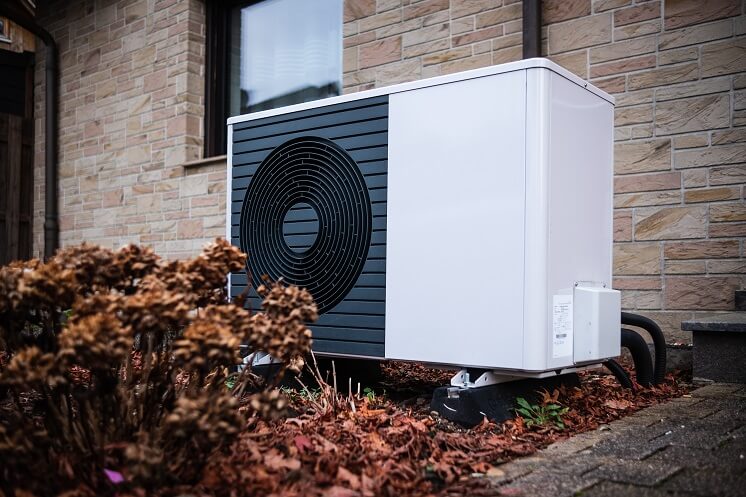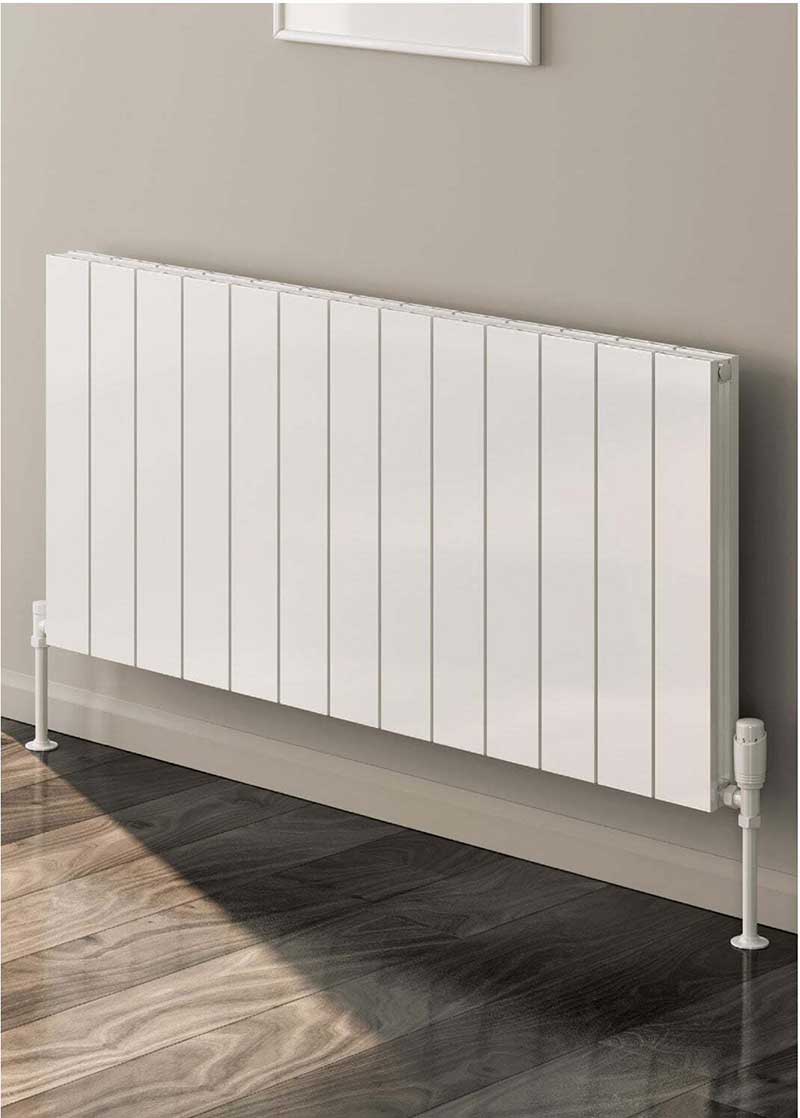- An air source heat pump can save you £4,340 over its lifetime
- Ground source heat pumps generate heat at a consistent level all year
- You can currently save 75% on the cost of a water source heat pump
As gas boilers are set to be prohibited in newly constructed homes, there is a significant opportunity for heat pumps to fill this void. The reasons for this are evident. Despite the initial costs associated with heat pumps, they have the potential to save you money and significantly reduce your carbon footprint.
It’s understandable why the government is promoting the adoption of heat pumps. They have the capability to extract heat from the coldest air, ground, or body of water, operate quietly, and can be neatly installed on the exterior of your home, thus not occupying indoor space.
If you prefer to skip the detailed reading, you can conveniently compare the top heat pumps available on the market by providing some information about your home in our form. We will then share your details with our trusted suppliers, who will offer you free quotes for comparison.

What's on this page?
Are heat pumps worth it?
Investing in heat pumps is generally a sound decision.
An air source heat pump typically yields savings of £4,340 over its lifespan compared to a gas boiler, allowing you to reduce your costs by embracing eco-friendly solutions.
This can be attributed to several factors, including escalating gas prices, the government’s Boiler Upgrade Scheme, the improving efficiency of heat pumps, and the longer lifespan of air source heat pumps, which generally last around 20 years compared to the 10-year lifespan of gas boilers.
Water source heat pumps have the potential to offer even greater energy bill savings, being typically 4.5 times more efficient than gas boilers and 1.5 times more efficient than air and ground source heat pumps.
While ground source heat pumps are notably more expensive, they can significantly decrease carbon emissions, future-proof your home from potential boiler bans, and ensure a consistent year-round heat supply.
When considering costs, it’s important to take into account potential additional expenses such as the need to modify your radiators or install underfloor heating before installing a heat pump.
Each of these factors will be examined in detail.
1. The changing cost of energy
Heat pumps exhibit remarkable efficiency, ranging from 300% to 600% more efficient than gas boilers. Nevertheless, they rely on electricity, which currently costs four times more than gas in the UK.
However, the landscape is evolving. Wholesale gas prices have surged by 404% in the past year, leading to substantial increases in annual expenses for millions of households, with further escalations anticipated.
The independent Climate Change Committee estimates that the average gas price will be 50% higher in 2030. Conversely, as gas prices rise, electricity is projected to become more affordable.
The government is actively working to eliminate green levies from electricity costs, a move that would significantly reduce the operational expenses of heat pumps.
These developments have spurred 60% of UK residents to consider transitioning from gas boilers to renewable alternatives.
Moreover, substantial savings can be achieved by integrating solar panels to power both your heat pump and electricity requirements.
2. Government grants
The primary government grant for heat pumps, known as the Boiler Upgrade Scheme, currently provides a £7,500 subsidy for the installation of air, ground, and water source heat pumps.
With typical costs for air and water source heat pumps amounting to around £10,000 for both purchase and installation, this presents an opportunity to acquire a top-tier system at a significantly reduced price.
By taking advantage of this scheme, you can capitalize on the overall cost-effectiveness of air or water source heat pumps in comparison to gas boilers.
Furthermore, a variety of other heat pump grants are accessible to low-income families across the UK. For additional details, you can visit our page on government grants for heat pumps.
3. The gas boiler ban
The Boiler Upgrade Scheme has evidently been designed in anticipation of the gas boiler ban, as well as the objective to install 600,000 heat pumps in homes annually by 2028, although the government has not committed to a specific ban date.
In response to a query from The Eco Experts regarding the set date for the gas boiler ban, a spokesperson from the Department for Business, Energy and Industrial Strategy stated, “We do not comment on speculation. We will set out plans to decarbonise heat and buildings through our comprehensive strategy this year, and our approach will be guided by ensuring the transition is fair, affordable, and practical.”
The gas boiler ban is now projected to be implemented in 2035, with a complete cessation of gas heating expected by 2040, making it sensible to leverage government initiatives to comply with the new regulations.
Approaching 2035, companies are likely to show diminished enthusiasm for producing new gas boilers for a diminishing customer base, leading to declining industry standards.
If you wish to expedite the process of finding your ideal heat pump, simply use our form, and our experts will reach out with their best prices.
4. Growing demand and increasing efficiency
When introducing the Boiler Upgrade Scheme, the government highlighted the growing popularity of heat pumps.
“We anticipate that the majority of applicants are inclined to choose air source heat pumps for transitioning to low-carbon heat, given their lower cost compared to other low-carbon heat alternatives,” it stated.
“This trend is also consistent with the Renewable Heat Incentive (RHI), where 81.5% of accredited domestic installations in 2019 were air source heat pumps.”
Moreover, there is a continuous enhancement in heat pump efficiency. While the average rate stands at 300%, the top models have already achieved 500%, resulting in even greater energy bill savings over the lifespan of the system.
When coupled with the impending gas boiler ban, it becomes increasingly sensible to invest in a heat pump.
How much do heat pumps cost?
The price of heat pumps generally ranges from £10,000 to £49,000, varying based on the type of machine selected.
On average, air source heat pumps cost between £7,000 and £13,000, with the potential for a £7,500 reduction if the installer utilizes the Boiler Upgrade Scheme.
A water source heat pump typically carries an average cost of £10,000, although ownership or permission to use a body of water is required.
Fortunately, the Boiler Upgrade Scheme can also lower the cost of ground or water source heat pumps.
What are the benefits of a heat pump?
- Air and water source heat pumps can cut your costs
- A heat pump will massively reduce your carbon emissions
- You'll future-proof your home against the upcoming gas boiler ban
- An air-to-air heat pump can both cool and heat your home
Heat pumps exhibit remarkable efficiency, capable of both cooling and heating your residence while generating energy from air, ground, or water – three entirely renewable resources.
Furthermore, the Boiler Upgrade Scheme offers the potential for long-term savings when compared to a gas boiler over the lifespan of an air or water source heat pump.
In addition to the financial advantages, replacing your gas boiler with a heat pump can result in a substantial annual reduction of at least 1.9 tonnes of CO2 emissions, according to the Energy Saving Trust.
For those currently utilizing an oil boiler, the shift to a heat pump could slash at least 2.9 tonnes of CO2 per year from their carbon footprint, while even users of electric storage heaters can achieve a 1.6-tonne reduction.
Following the installation of your new heat pump, with a substantial government-funded discount, you can relish its benefits for a minimum of the next 20 years.
Heat pumps as air conditioners
An air-to-air heat pump has the capability to reverse its function, offering cool air during hot summer days – a more common occurrence today.
Rather than drawing warmth from the outside and distributing it within your home, a dual option heat pump can extract warm air from indoors. Additionally, it can cool a portion of this warm air and release refreshing gusts into your home, functioning akin to an air conditioner.
Can a gas boiler offer such versatility? Definitely not.
Are air source heat pumps noisy?
The government has set a maximum noise limit of 42 decibels for an air source heat pump at a distance of one meter from a window or door of your nearest neighbor’s home.
This noise level is relatively low, comparable to the background hum of a refrigerator, the quiet atmosphere of a library, or a suburban area at night.
While it might be feasible to surpass the 42 dB limit by obtaining specific planning permission, it is generally unnecessary, as heat pumps have been designed in compliance with this 2012 regulation for a significant period.
The verdict
Investing in air source heat pumps is highly advantageous, particularly in light of the introduction of the Boiler Upgrade Scheme.
The potential for substantial CO2 savings over the next two decades is compelling in itself, and the significant £4,340 reduction further enhances its appeal.
This grant, coupled with the impending ban on gas boilers in new homes and the likelihood of additional restrictions to facilitate the UK’s journey to achieving net-zero carbon emissions by 2050, makes the proposition even more enticing.
With a ban on new gas boilers on the horizon, it is prudent to capitalize on government initiatives to facilitate the transition to a more environmentally friendly and cost-effective heating system.
If you are inclined to pursue this opportunity, you can secure the most favorable arrangement by completing a brief form, allowing our premier heat pump suppliers to furnish you with complimentary quotes for comparison.
.
Find out how much a heat pump would cost you
Complete A Short Form – Receive Free Quotes – Compare & Save
Find out how much a heat pump would cost you
Complete A Short Form – Receive Free Quotes – Compare & Save

